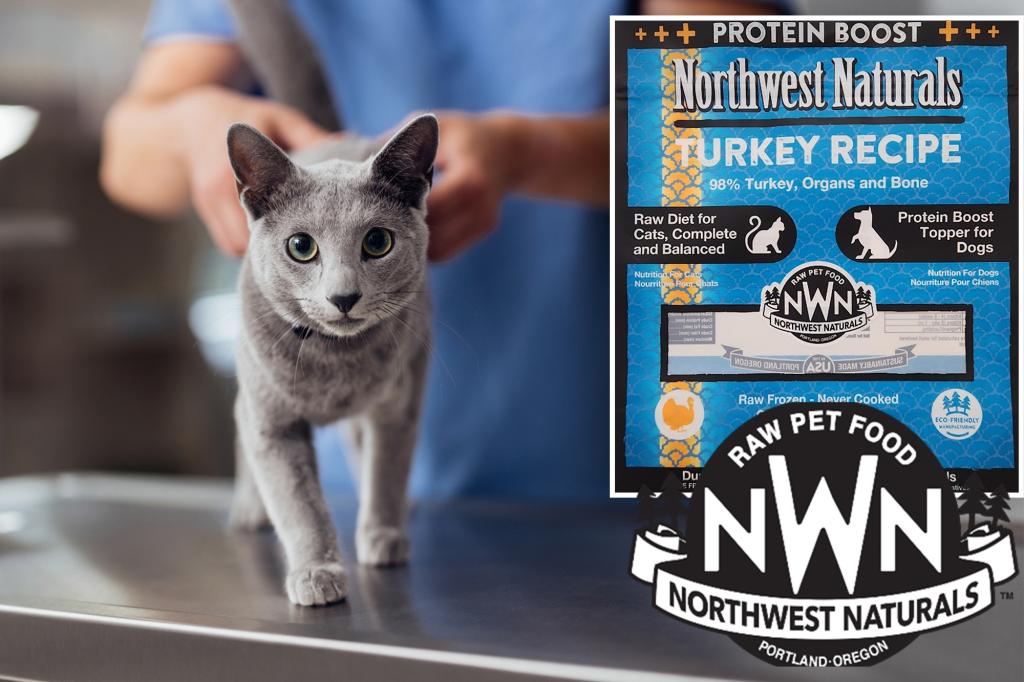The recent death of a house cat in Oregon due to highly pathogenic avian influenza (HPAI), commonly known as bird flu, has raised concerns about the potential spread of the virus through pet food. The cat’s demise followed its consumption of contaminated raw frozen pet food produced by Northwest Naturals, a Portland-based company. Subsequent testing of the food confirmed the presence of the H5N1 strain of bird flu, prompting a voluntary recall of the affected product. This incident marks a significant development in the ongoing bird flu outbreak, highlighting the potential for transmission to domestic animals through contaminated food sources and underscoring the importance of stringent biosecurity measures in pet food production.
The recalled product, Northwest Naturals’ Feline Turkey Recipe, was distributed across multiple states, including Arizona, California, Colorado, Florida, Georgia, Illinois, Maryland, Michigan, Minnesota, Pennsylvania, Rhode Island, and Wisconsin, as well as the Canadian province of British Columbia. This wide distribution network necessitates a comprehensive recall effort to ensure that all contaminated products are removed from circulation and safely disposed of. Consumers who purchased the affected product are advised to immediately discard it and contact the retailer for a refund. The incident underscores the vital role of effective product recall systems in mitigating the risks associated with contaminated pet food.
Oregon authorities have definitively linked the cat’s death to the consumption of the contaminated pet food. The cat, being an indoor animal, had no other potential exposure to the H5N1 virus, further strengthening the connection between the pet food and the infection. Genome sequencing analysis confirmed an exact match between the virus found in the pet food and the virus that infected the cat, providing conclusive evidence of the source of infection. This finding highlights the susceptibility of domestic cats to H5N1 infection and raises concerns about the potential for further transmission to other pets.
While no human cases of bird flu have been directly linked to this incident, individuals who came into contact with the infected cat are being closely monitored for any flu-like symptoms. This precautionary measure reflects the ongoing concern about the potential for H5N1 to jump from animals to humans, although the risk of such transmission remains low. The Centers for Disease Control and Prevention (CDC) continues to monitor the situation closely, emphasizing the importance of vigilance and prompt reporting of any suspected cases.
The broader context of the current bird flu outbreak adds further significance to this incident. The H5N1 strain has been circulating widely among wild bird populations and has also impacted commercial poultry operations, leading to significant economic losses. The detection of H5N1 in a domestic cat through contaminated pet food represents a new avenue of transmission and raises concerns about the potential for the virus to spread further within domestic animal populations. This incident highlights the interconnectedness of animal health, human health, and the environment, emphasizing the need for a comprehensive One Health approach to address emerging infectious disease threats.
The ongoing efforts to control and contain the bird flu outbreak involve a multifaceted approach, including surveillance, biosecurity measures, vaccination, and public health awareness campaigns. The incident in Oregon underscores the importance of strengthening biosecurity protocols within the pet food industry to prevent future contamination events. This includes implementing rigorous testing procedures for raw materials, ensuring proper hygiene throughout the production process, and maintaining strict separation between raw and processed products. Continued vigilance and proactive measures are essential to mitigate the risks posed by the highly pathogenic avian influenza virus and protect both animal and human health.

